The Seven Sacraments of the Catholic Church
The Sacraments are defined as outward signs of inward grace, instituted by Christ to help individuals in their spiritual life and to grow in holiness. Sacraments are mysteries; they are signs of the sacred presence of our God in our midst today. They are more than mere signs, however, for the sacraments impart grace. The sacraments help to make people holy and build-up the body of Christ. They are a way to relate to God throughout life’s transitions and help us to give praise and worship to God. They help us nourish, strengthen, and express our faith. Through the sacraments, Jesus remains with His people, strengthening, healing, feeding, and forgiving them as they face life’s challenges.
The Catholic Church celebrates seven Sacraments, which were instituted by Christ during his earthly ministry and which continue to define the liturgical life of the Church today. The Sacraments nourish, strengthen, and express faith.
Sacraments of Christian Initiation
Christian initiation is accomplished by means of the sacraments which establish the foundations of Christian life. The faithful born anew by Baptism are strengthened by Confirmation and are then nourished by the Eucharist. Read more about the Sacraments of Christian Initiation.

The Sacrament of Baptism
"Holy Baptism is the basis of the whole Christian life, the gateway to life in the Spirit, and the door which gives access to the other sacraments. Through Baptism we are freed from sin and reborn as sons (and daughters) of God; we become members of Christ, are incorporated into the Church and made sharers in her mission…"—Catechism of the Catholic Church (CCC 1213)
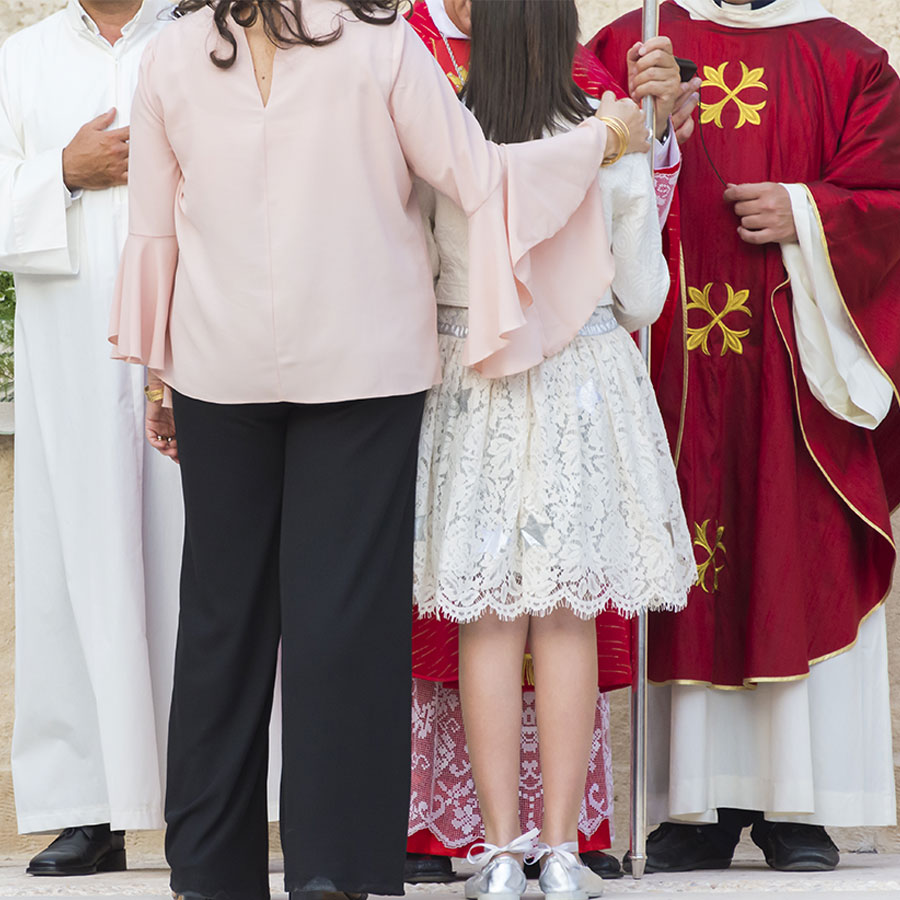
The Sacrament of Confirmation
“And while staying with them Jesus charged them not to depart from Jerusalem, but to wait for the promise of the Father, which, He said, ‘You heard from me, for John baptized with water, but before many days you shall be baptized with the Holy Spirit'”—(Acts 1:4-5).
Even though the apostles had lived with Jesus for three years, been witnesses of His miracles, and saw Him risen from the dead, it was not until they received the outpouring of the Holy Spirit on the Day of Pentecost that they were filled with courage to proclaim the Gospel to those around them. The Sacrament of Confirmation is the reception of that same Spirit, completing our initiation sending us out into the community to tell others of the Risen Lord.
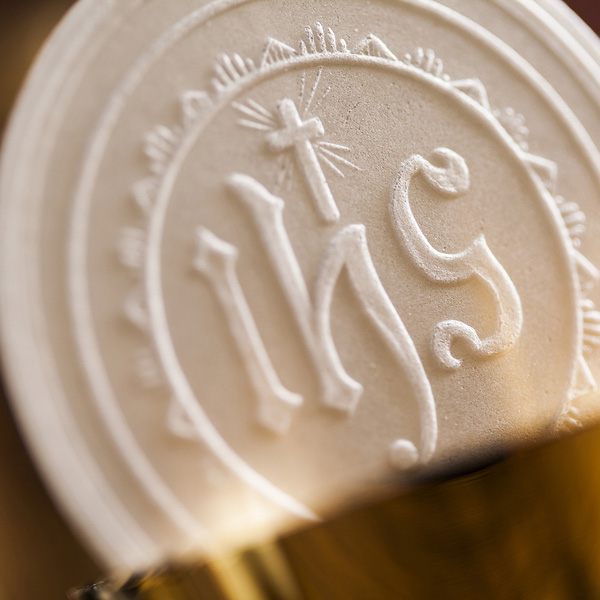
The Sacrament of the Holy Eucharist
“The Eucharist is Jesus who gives himself entirely to us. To nourish ourselves with him and abide in him through Holy Communion, if we do it with faith, transforms our life into a gift to God and to our brothers,”—the Pope said Aug. 16.
Sacraments of Healing
Christ, the physician of our soul and body, instituted these sacraments because the new life that he gives us in the sacraments of Christian initiation can be weakened and even lost because of sin. Therefore, Christ willed that his Church should continue his work of healing and salvation by means of these two sacraments. Read more about the Sacraments of Healing.
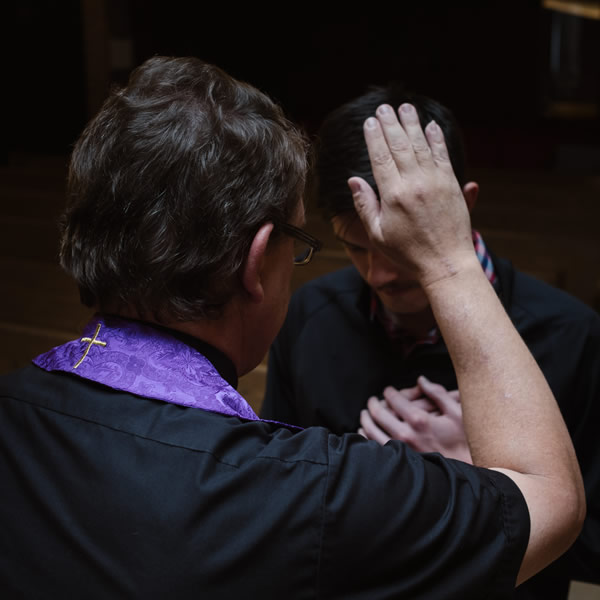
The Sacrament of Reconciliation (Confession)
Like the merciful father in the parable of the prodigal son, God is eager to forgive, adds Pope Francis: “Each time we go to confession, God embraces us. God rejoices!”—(General Audience Feb. 2014).
Want to go to Confession?
The sacrament of Reconciliation is offered Tuesdays/Thursdays from 5:00-6:00pm and Saturdays from 9:30-10:30am. We will often have additional opportunities during Advent and Lent.
Confession Schedule:
Saturdays: 9:30 - 10:30am
Tuesdays and Thursdays: 5:00 - 6:00pm
If you would like to make an appointment to receive the sacrament of Reconciliation, please call the Parish Office to set up a time with our Pastor.
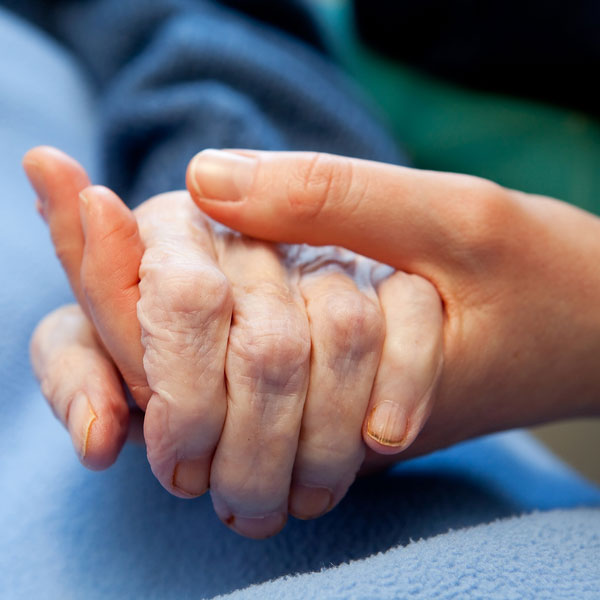
The Sacrament of Anointing of the Sick
“Is any among you sick? Let him call for the elders of the church, and let them pray over him, anointing him with oil in the name of the Lord”—(James 5:14).
Many of us, perhaps, remember a time when this sacrament was celebrated only for those who were dying. However any illness of serious nature can be a legitimate reason to celebrate the sacrament. What’s more, the sacrament may be repeated if the sick person recovers after the anointing but becomes ill once again, or if, during the same illness, the person’s condition becomes more serious. Any person over the age of reason (age seven) preparing for surgery is encouraged to contact one of the priests to receive the sacrament.
Do you feel you need the Anointing of the sick?
Anointing of the Sick and Pastoral Care at Our Lady of Lourdes
Sacraments at the Service of Communion and Mission
Two sacraments, Holy Orders and Matrimony, confer a special grace for a particular mission in the Church to serve and build up the People of God. These sacraments contribute in a special way to ecclesial communion and to the salvation of others. Read more about the Sacraments at the Service of Communion and Mission.
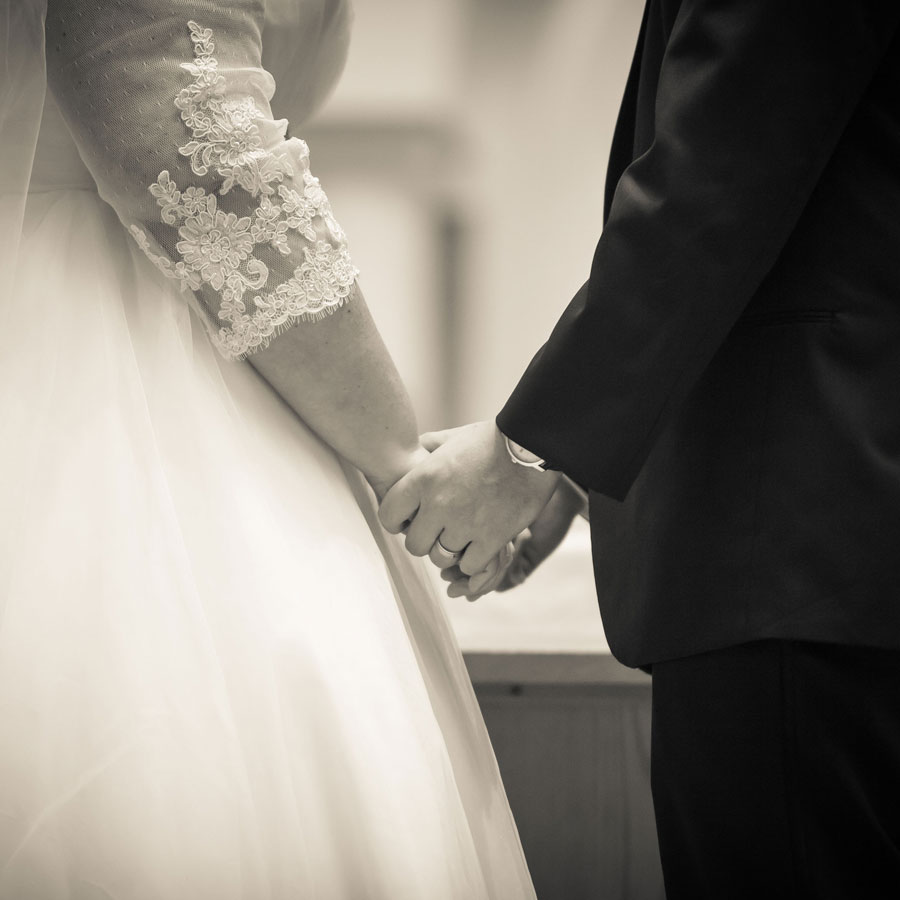
The Sacrament of Marriage (Matrimony)
A sacrament is a visible sign of an invisible reality that gives grace. In marriage, the visible sign is the love that a husband and wife have for each other. The invisible reality to which they point is the love that Jesus has for his bride, the Church. In the Sacrament of Marriage, God gives grace, that is to say, supernatural power, to make His own love, mercy, generosity, kindness, and compassion tangible.
Would you like to have your wedding at Our Lady of Lourdes?

The Sacrament of Holy Orders
“Christ is knocking very hard at many hearts, looking for young people like you to send into the vineyard where an abundant harvest is ready.”—St. John Paul II
For more information, contact Fr. Sheunesu Bowora at 623-546-2767.